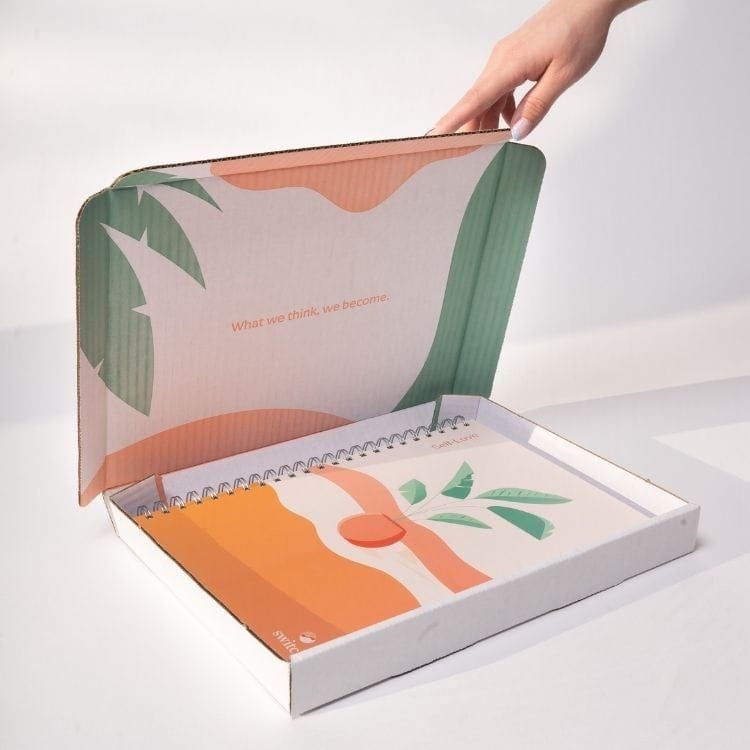Embarking on the path of self-discovery is one of the most empowering and transformative experiences a person can undertake. It involves peeling away layers of external expectations, societal roles, and internal doubts to reveal your authentic self. This process isn’t about becoming someone new, but rather about understanding who you truly are at your core. By aligning your life with your values, passions, and personal truths, you can live a more balanced and fulfilling existence.
In this article, we’ll explore the steps to uncover your true self and how doing so can lead to a more harmonious and meaningful life.

Why Is Self-Discovery Important?
Self-discovery is the process of gaining insight into your personality, values, desires, and goals. It’s about understanding your strengths and weaknesses, acknowledging your emotions, and realizing what truly matters to you. Without a strong sense of self, you may find yourself living according to other people’s expectations, feeling lost or unfulfilled. By knowing who you are, you can create a life that reflects your true desires, leading to greater happiness and balance.
The Benefits of Self-Discovery
- Clarity and Direction: When you understand who you are, it becomes easier to make decisions and set goals that align with your authentic self. You’re no longer swayed by external influences but are guided by your inner compass.
- Improved Relationships: Self-awareness helps you form healthier, more authentic relationships. By understanding your needs and boundaries, you can communicate more effectively and foster deeper connections with others.
- Increased Resilience: When you know your strengths and weaknesses, you’re better equipped to navigate life’s challenges. Self-discovery builds emotional resilience, helping you stay grounded even during difficult times.
- Greater Happiness and Fulfillment: Living in alignment with your true self leads to a more meaningful, satisfying life. You feel more fulfilled because you’re pursuing what genuinely brings you joy and purpose.
The Journey of Self-Discovery: Key Steps
Self-discovery is not a one-time event; it’s an ongoing journey that requires introspection, courage, and patience. Below are some key steps to help you begin or deepen your self-discovery journey.
1. Reflect on Your Values and Beliefs
Your values and beliefs are the foundation of who you are. They shape your decisions, influence your behavior, and guide your goals. However, many people go through life without ever stopping to evaluate their core values. Start by asking yourself:
- What do I truly believe in?
- What values guide my decisions and actions?
- What’s most important to me in life—family, career, freedom, creativity, or something else?
Make a list of your top five values and reflect on how well your current life aligns with them. This exercise will provide you with clarity on what drives you and how to live more authentically.
2. Understand Your Strengths and Weaknesses
We all have unique talents, strengths, and areas for growth. Self-discovery involves acknowledging both your strengths and weaknesses without judgment. One of the most effective ways to gain insight into these aspects is through self-assessment tools, such as the Myers-Briggs Type Indicator (MBTI) or the StrengthsFinder assessment.
In addition to formal assessments, ask yourself:
- What am I naturally good at?
- What do others often praise me for?
- What challenges do I struggle with, and how can I improve?
Understanding your strengths allows you to leverage them in your personal and professional life, while recognizing your weaknesses gives you the opportunity to grow.
3. Explore Your Passions and Interests
Passions are the things that ignite your soul, the activities that make you lose track of time because you’re so absorbed in them. However, many people lose touch with their passions as they prioritize responsibilities and societal expectations.
To reconnect with your passions, reflect on:
- What activities make me feel alive and energized?
- What would I do even if I wasn’t being paid for it?
- What hobbies or interests have I lost touch with, and how can I reintroduce them into my life?
Living a life filled with passion leads to a deeper sense of purpose and fulfillment. It’s not about following trends or what others think you should do, but about embracing what makes you feel most alive.
4. Practice Mindfulness and Self-Awareness
Mindfulness is the practice of being fully present in the moment, aware of your thoughts, feelings, and physical sensations without judgment. It’s a powerful tool for self-discovery because it allows you to observe yourself with clarity and compassion.
To cultivate mindfulness, try incorporating these practices into your daily life:
- Meditation: Spend 5-10 minutes each day sitting in silence, focusing on your breath, and observing your thoughts. This simple practice can help you become more attuned to your inner world.
- Journaling: Writing down your thoughts, feelings, and reflections can provide valuable insights into your subconscious mind. Make it a habit to journal regularly, especially when you’re feeling confused or overwhelmed.
- Body Scan: Take a few moments each day to check in with your body. Notice any areas of tension or discomfort, and explore what these sensations might be telling you about your emotional state.
Mindfulness increases self-awareness and helps you break free from autopilot mode, enabling you to make more conscious decisions aligned with your true self.
5. Challenge Limiting Beliefs
Limiting beliefs are the subconscious thoughts and assumptions that hold you back from reaching your full potential. They often stem from past experiences, societal conditioning, or fear of failure. These beliefs can manifest as thoughts like “I’m not good enough,” “I’ll never succeed,” or “I don’t deserve happiness.”
To challenge limiting beliefs:
- Identify the negative thought patterns that keep recurring in your mind.
- Ask yourself whether these beliefs are truly valid or if they’re simply fears or insecurities.
- Replace them with positive affirmations or more empowering beliefs. For example, instead of saying “I’m not good enough,” try “I am capable, and I can achieve my goals.”
Overcoming limiting beliefs is crucial for personal growth and self-discovery, as it allows you to step into your full potential without fear or self-doubt.
6. Seek Feedback from Others
While self-reflection is important, feedback from others can offer a valuable perspective on your blind spots and strengths. Ask trusted friends, family members, or mentors for honest feedback about your behavior, strengths, and areas for improvement.
Some questions to consider asking:
- What do you think are my greatest strengths?
- Where do you see me holding myself back?
- How do you perceive my communication style or decision-making process?
Feedback from others can serve as a mirror, providing you with insights that you may not have noticed on your own.
7. Step Outside Your Comfort Zone
Self-discovery often involves stepping outside of your comfort zone. When you challenge yourself to try new experiences or face your fears, you learn more about your true capabilities and desires. Whether it’s taking up a new hobby, traveling solo, or starting a new project, stepping into unfamiliar territory can lead to significant personal growth.
Some ways to push your boundaries:
- Travel: Visiting new places can expose you to different cultures, perspectives, and ways of living, helping you expand your worldview and gain fresh insights about yourself.
- Learn New Skills: Take a class in something you’ve always wanted to try, whether it’s painting, cooking, or coding. Learning new skills challenges your mind and helps you discover hidden talents.
- Face Your Fears: Whether it’s public speaking, confronting a difficult relationship, or taking a career risk, facing your fears head-on can empower you and deepen your self-awareness.
Growth happens when you’re willing to step beyond what’s familiar and comfortable.
8. Cultivate a Balanced Life
A balanced life is one that nourishes your mind, body, and spirit. It involves prioritizing self-care, setting boundaries, and making time for the things that bring you joy and fulfillment. Here are some tips for living a more balanced life:
- Create a Daily Routine: Structure your day in a way that includes time for work, relaxation, exercise, and personal interests.
- Set Boundaries: Learn to say no to activities or commitments that drain your energy or don’t align with your values.
- Nurture Your Relationships: Spend time with people who uplift and support you. Meaningful relationships are a key component of a balanced, fulfilling life.
- Practice Self-Care: Make time for activities that rejuvenate your mind and body, whether it’s taking a walk in nature, reading a book, or enjoying a warm bath.
Living a balanced life means aligning your actions with your values and ensuring that you’re nurturing all aspects of your well-being.
Conclusion: Embrace the Journey
The journey of self-discovery is a lifelong process of growth, reflection, and transformation. It’s not about finding all the answers at once, but about being open to continuous learning and evolving as a person. By taking the time to explore your values, passions, strengths, and beliefs, you’ll gain a deeper understanding of who you are and what you want out of life.
As you embark on this journey, remember to be patient with yourself and embrace the process. There is no “right” way to discover who you are; it’s a unique and personal experience for each individual. The more you invest in self-discovery, the more balanced, authentic, and fulfilled your life will become.
Start today by taking small steps—whether through reflection, mindfulness, or new experiences—and watch as your life begins to




